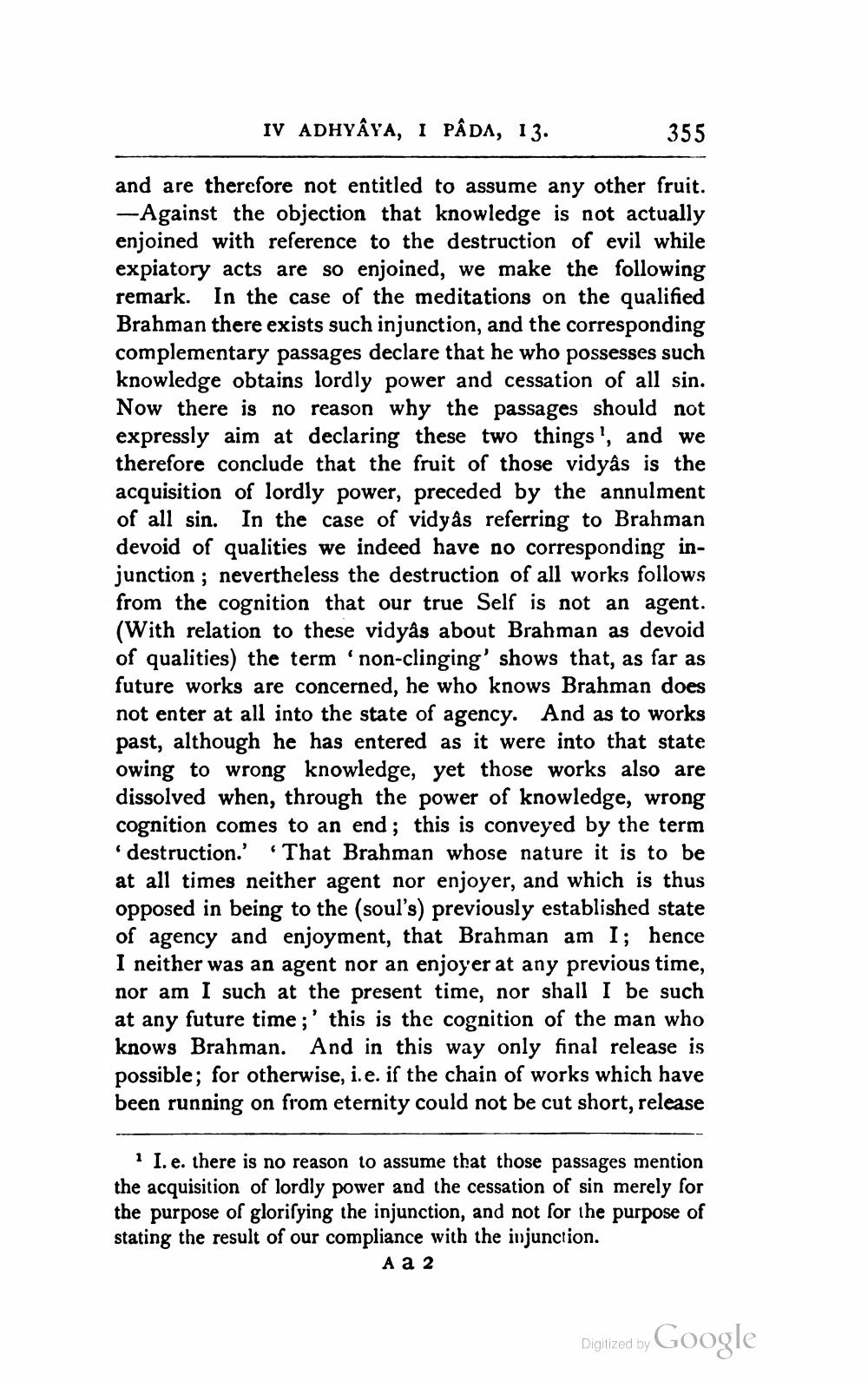________________
IV ADHYÂYA, I PÂDA, 13.
355
and are therefore not entitled to assume any other fruit.
-Against the objection that knowledge is not actually enjoined with reference to the destruction of evil while expiatory acts are so enjoined, we make the following remark. In the case of the meditations on the qualified Brahman there exists such injunction, and the corresponding complementary passages declare that he who possesses such knowledge obtains lordly power and cessation of all sin. Now there is no reason why the passages should not expressly aim at declaring these two things', and we therefore conclude that the fruit of those vidyâs is the acquisition of lordly power, preceded by the annulment of all sin. In the case of vidyâs referring to Brahman devoid of qualities we indeed have no corresponding injunction ; nevertheless the destruction of all works follows from the cognition that our true Self is not an agent. (With relation to these vidyâs about Brahman as devoid of qualities) the term 'non-clinging' shows that, as far as future works are concerned, he who knows Brahman does not enter at all into the state of agency. And as to works past, although he has entered as it were into that state owing to wrong knowledge, yet those works also are dissolved when, through the power of knowledge, wrong cognition comes to an end; this is conveyed by the term
destruction. That Brahman whose nature it is to be at all times neither agent nor enjoyer, and which is thus opposed in being to the (soul's) previously established state of agency and enjoyment, that Brahman am I; hence I neither was an agent nor an enjoyer at any previous time, nor am I such at the present time, nor shall I be such at any future time;' this is the cognition of the man who knows Brahman. And in this way only final release is possible; for otherwise, i.e. if the chain of works which have been running on from eternity could not be cut short, release
1 I. e. there is no reason to assume that those passages mention the acquisition of lordly power and the cessation of sin merely for the purpose of glorifying the injunction, and not for the purpose of stating the result of our compliance with the injunction.
A a 2
Digitized by
Digized by Google




